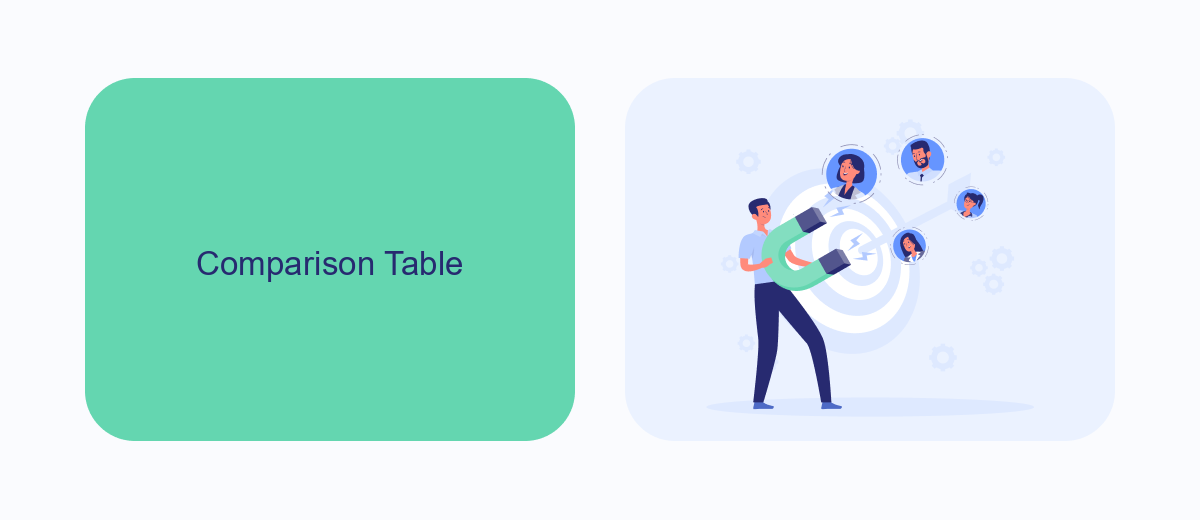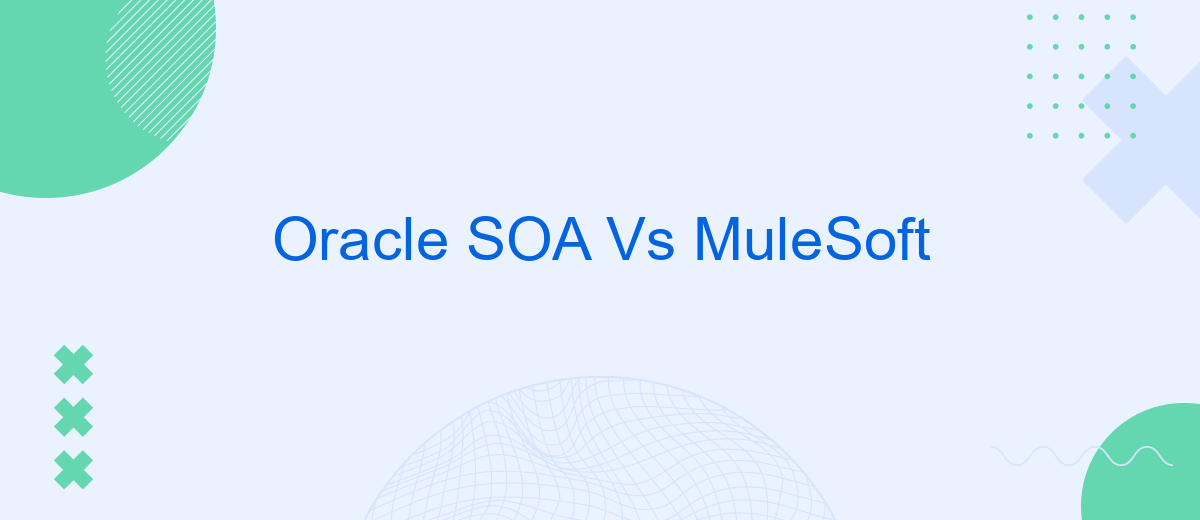In the rapidly evolving landscape of enterprise integration, choosing the right platform is crucial for seamless operations. Oracle SOA and MuleSoft are two leading contenders, each offering unique strengths and capabilities. This article delves into a comparative analysis of Oracle SOA and MuleSoft, examining their features, benefits, and potential drawbacks to help organizations make an informed decision.
Overview
Oracle SOA and MuleSoft are two prominent platforms in the realm of service-oriented architecture (SOA) and integration solutions. While both aim to streamline business processes and enhance connectivity between various applications, they offer distinct features and capabilities that cater to different organizational needs.
- Oracle SOA Suite: A comprehensive, standards-based software suite designed to build, deploy, and manage integrations using a service-oriented architecture.
- MuleSoft Anypoint Platform: A unified, hybrid integration platform that enables organizations to connect applications, data, and devices with APIs.
Choosing between Oracle SOA and MuleSoft largely depends on factors such as the complexity of integration requirements, existing infrastructure, and specific business goals. For organizations looking to simplify the integration process further, tools like SaveMyLeads can offer additional automation and efficiency, making it easier to connect various systems without extensive coding or technical expertise.
Comparison Table

When comparing Oracle SOA and MuleSoft, it's crucial to consider various factors such as integration capabilities, ease of use, and scalability. Oracle SOA offers a robust suite of tools designed for complex enterprise-level integrations, providing extensive support for various protocols and standards. MuleSoft, on the other hand, is known for its user-friendly interface and flexibility, making it suitable for both small and large-scale integrations. Both platforms offer cloud and on-premises deployment options, ensuring adaptability to different business needs.
Another important aspect to consider is the community and support ecosystem. Oracle SOA benefits from a long-standing presence in the market, offering a wealth of resources and a strong support network. MuleSoft, while newer, has rapidly grown its community and offers extensive documentation and customer support. Additionally, for businesses looking to streamline their integration processes, services like SaveMyLeads can provide valuable assistance by automating data transfer between various applications, further enhancing the efficiency of both Oracle SOA and MuleSoft platforms.
Architecture

When comparing the architecture of Oracle SOA and MuleSoft, it's important to understand their core components and design principles. Both platforms aim to streamline integration processes but differ in their approach and underlying architecture.
- Oracle SOA Suite: Oracle SOA Suite is a comprehensive, unified middleware solution that integrates various services and applications. It relies heavily on a centralized service bus, BPEL (Business Process Execution Language), and human task services to orchestrate and manage complex workflows.
- MuleSoft Anypoint Platform: MuleSoft's Anypoint Platform is a lightweight, flexible integration platform that uses APIs to connect applications, data, and devices. It emphasizes a decentralized architecture with reusable APIs and connectors, enabling rapid integration and scalability.
Both platforms have their strengths; Oracle SOA Suite is ideal for enterprises needing robust, centralized control over complex integrations, while MuleSoft excels in environments requiring agility and decentralized API management. Tools like SaveMyLeads can further enhance these platforms by automating lead data integration, reducing manual effort, and improving overall efficiency.
Integration Capabilities

When comparing Oracle SOA and MuleSoft, both platforms offer robust integration capabilities, but they cater to different needs and preferences. Oracle SOA Suite is known for its comprehensive middleware solutions, providing a wide range of tools for enterprise application integration, business process management, and service-oriented architecture.
On the other hand, MuleSoft, with its Anypoint Platform, excels in API-led connectivity, allowing organizations to connect applications, data, and devices seamlessly. MuleSoft's approach focuses on flexibility and speed, enabling businesses to quickly adapt to changing requirements.
- Oracle SOA Suite: Comprehensive middleware solutions, strong in enterprise application integration.
- MuleSoft Anypoint Platform: API-led connectivity, high flexibility, and rapid deployment.
- SaveMyLeads: Simplifies integration setup, automates data workflows, and supports various platforms.
While Oracle SOA is ideal for complex, large-scale integrations requiring robust middleware, MuleSoft is better suited for agile, API-driven environments. SaveMyLeads can complement both by offering easy-to-use integration tools that automate data workflows, making it a valuable addition to any integration strategy.
Use Cases and Examples
Oracle SOA Suite is often used in large enterprises that require comprehensive, scalable, and robust integration solutions. It is ideal for complex business processes that need orchestration across various applications and services. For instance, a financial institution might use Oracle SOA to integrate their core banking system with CRM, ERP, and third-party payment gateways, ensuring seamless data flow and transaction processing. This is crucial for maintaining data integrity and optimizing operational efficiency.
On the other hand, MuleSoft is popular among organizations looking for an agile and flexible integration platform. It is particularly useful for businesses aiming to connect cloud-based applications with on-premises systems. For example, a retail company might use MuleSoft to integrate their e-commerce platform with inventory management and customer service systems. Additionally, services like SaveMyLeads can further enhance integration capabilities by automating lead data transfer between different marketing tools and CRMs, providing a more streamlined and efficient workflow.


FAQ
What are the primary differences between Oracle SOA and MuleSoft?
Which platform is easier to implement for a small to medium-sized business?
How do the licensing and costs compare between Oracle SOA and MuleSoft?
Can both Oracle SOA and MuleSoft integrate with cloud services?
What support options are available for implementing and managing integrations?
Are you using Facebook Lead Ads? Then you will surely appreciate our service. The SaveMyLeads online connector is a simple and affordable tool that anyone can use to set up integrations for Facebook. Please note that you do not need to code or learn special technologies. Just register on our website and create the necessary integration through the web interface. Connect your advertising account with various services and applications. Integrations are configured in just 5-10 minutes, and in the long run they will save you an impressive amount of time.
